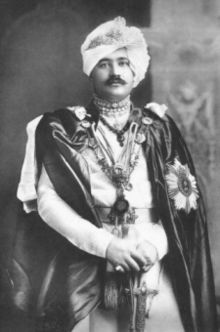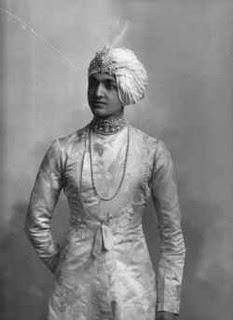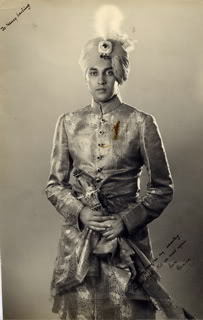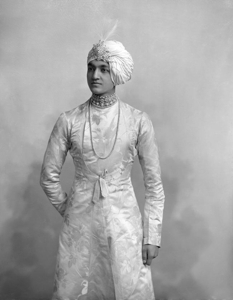
Upendra Narayana
Coins
Maharaja UPENDRA NARAYAN, 11th Maharaja of Cooch Behar 1714/1763, he adopted Kumar Shri Deena Narayan, son of Dewan Satya Narayan, conferring upon him all authority to run the state administration, married 2ndly, Rani Lalbai, and had issue. He died 1763.

Modnarayana
Coins
Modnarayana, also known as Maharaja Mod Narayan Singh, ruled the princely state of Kashi (now Varanasi, Uttar Pradesh, India) from 1791 to 1804.Modnarayana was the successor to Dhaijendra Narayan and continued the legacy of Kashi, a significant cultural and religious hub. Political Context: His reign occurred during a period of significant upheaval in India, marked by the decline of Mughal authority and the increasing influence of the British East India Company. This period saw various local rulers trying to assert their power while navigating the challenges posed by external forces.Cultural Contributions: Modnarayana is noted for his patronage of arts and religious activities. He supported local traditions and institutions, contributing to the cultural richness of Kashi. Challenges and Conflicts: Like his predecessor, Modnarayana faced pressures from rival local factions and the encroaching British. His administration had to deal with internal dissent and external threats, requiring diplomatic strategies and alliances. Modnarayana's rule is remembered for its efforts to sustain Kashi’s cultural heritage during a transformative period in Indian history. His reign helped preserve the identity of the region amid the broader changes taking place across the subcontinent.

Pran Narayana
Coins
Pran Narayana, also known as Maharaja Pran Narayan Singh, ruled the princely state of Kashi (Varanasi) from 1804 to 1835. Background: Pran Narayana succeeded Mod Narayana Singh and continued to oversee the cultural and political landscape of Kashi, which was a significant religious and educational center in India. Political Context: His reign took place during a time when British colonial influence was expanding in India. The dynamics of local governance were heavily influenced by the British East India Company, which sought to establish control over various princely states. Cultural Contributions: Pran Narayana was known for his patronage of arts, religion, and education. He supported local temples and cultural institutions, contributing to the preservation and flourishing of Kashi’s rich traditions. Challenges: Throughout his rule, Pran Narayana faced various challenges, including political pressures from the British and the need to maintain local autonomy amidst growing colonial authority. He navigated complex relationships with both the British and rival factions within the region. Legacy: His reign is remembered for the cultural and educational advancements in Kashi, as well as for attempts to maintain the sovereignty of the state during a transformative period in Indian history. Pran Narayana's efforts helped to uphold the region's identity in the face of colonial encroachment.

Dhairjendra Narayan
Coins
Maharaja Dhairjendra Narayan was the 13th ruler of the princely state of Cooch Behar, with two periods of reign: 1765–1770 and 1775–1783. His rule was marked by significant turmoil, including Bhutanese invasions that led to the loss of several regions to Bhutanese control. In 1770, he was imprisoned by the Bhutanese, which interrupted his reign until 1775. He was married to six wives, including Maharani Kamteswari Devi, and had several children, among them future Maharajas Dharendra Narayan and Harendra Narayan. Maharaja Dhairjendra Narayan died in 1783.
